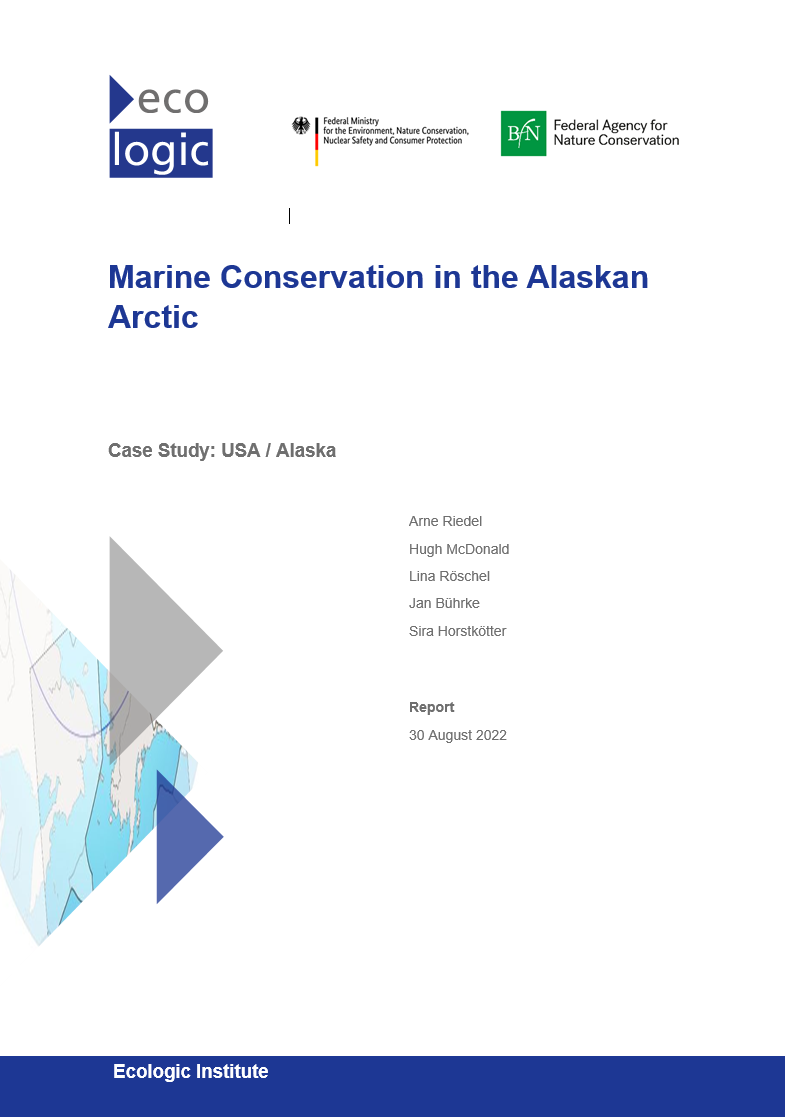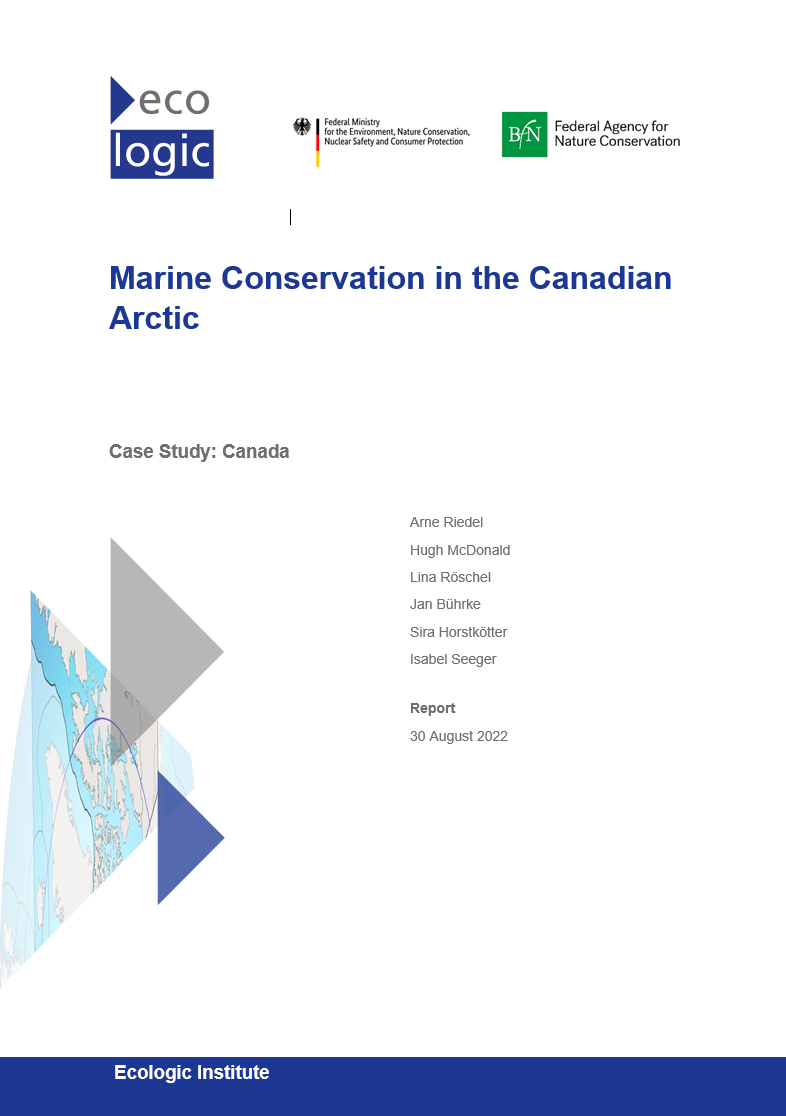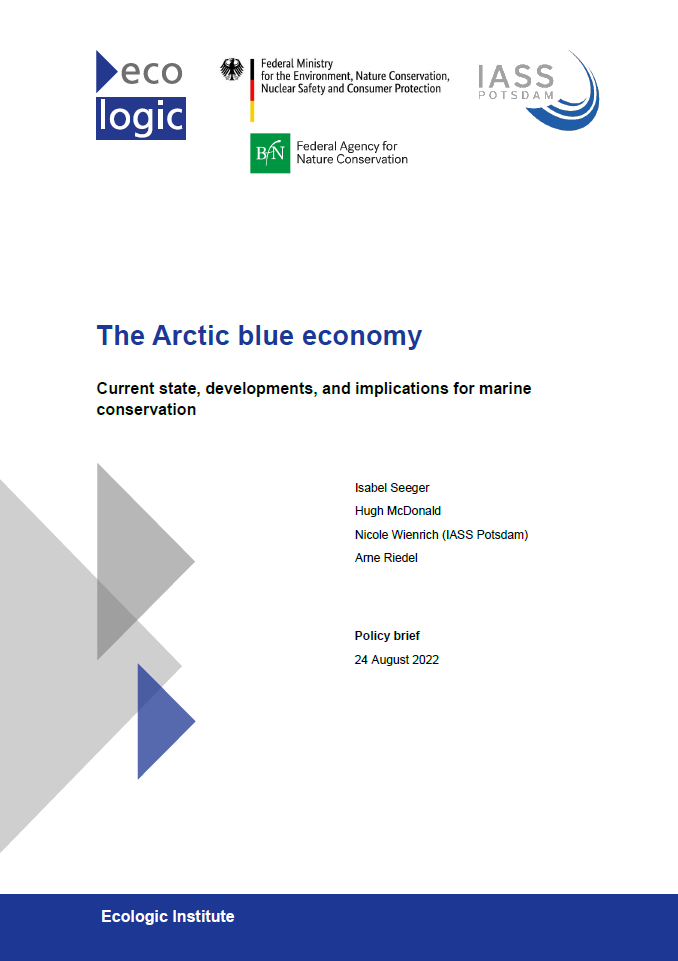Marine Conservation in the Alaskan Arctic
ArkMPA Case Study: USA / Alaska
- Publication
- Citation
Riedel, Arne, Hugh McDonald, Lina Röschel, Jan Bührke, Sira Horstkötter (2022). Marine Conservation in the Alaskan Arctic. Ecologic Institute, Berlin.
The Alaskan marine area of the Arctic under state management spreads across 91,000 square miles and hosts many hundreds of fish, bird and mammal species. The area is also home to around 10,000 residents, many of whom rely on the wildlife to support their livelihoods, as they operate as subsistence fishers in coastal marine waters of the Arctic area. Economic activities such as exploration and extraction of hydrocarbons, increasing maritime traffic, fisheries and tourism can put additional pressures on ecosystems that are already facing the impacts of climate change.
This report contains one of six case studies of the ArkMPA project, including five on marine policies in states bordering the Arctic Ocean, and one overarching regional report. The case study provides an overview of the Alaskan marine Arctic environment in terms of:
- the state and status of its ecosystems and their biodiversity;
- the drivers and associated pressures that impact marine ecosystem health, as well as
- the policies in place to protect the marine environment, in particular through marine protected areas.
Indigenous Peoples are heavily affected by both, the changes in the ecosystem, and by the Alaskan marine policies. This case study provides some elements in the respective context, and an offers a separate section with additional detail.






